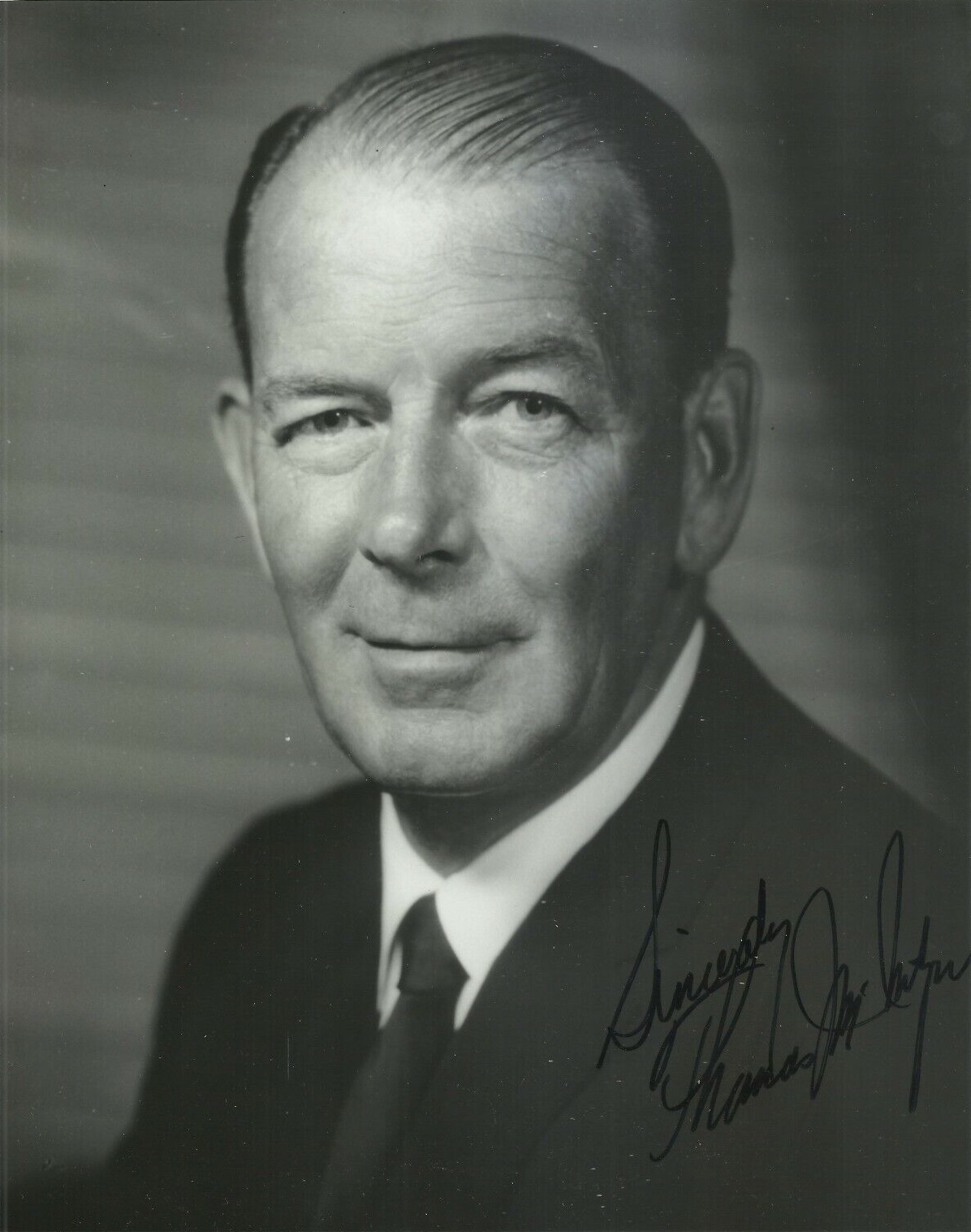Thomas J. McIntyre
| Thomas J. McIntyre | |
|---|---|
 |
|
|
United States Senator from New Hampshire |
|
|
In office November 7, 1962 – January 3, 1979 |
|
| Preceded by | Maurice J. Murphy, Jr. |
| Succeeded by | Gordon J. Humphrey |
| Personal details | |
| Born |
Thomas James McIntyre February 20, 1915 Laconia, New Hampshire |
| Died | August 8, 1992 (aged 77) Palm Beach, Florida |
| Political party | Democratic |
| Spouse(s) |
Myrtle Ann Clement (m. 1941–92) (his death) |
| Alma mater |
Dartmouth College, B.A. 1937 Boston University School of Law, LL.B. 1940 |
| Religion | Roman Catholic |
| Military service | |
| Allegiance |
|
| Service/branch |
|
| Years of service | 1942–1946 |
| Rank |
|
| Battles/wars | World War II |
Thomas James McIntyre (February 20, 1915 – August 8, 1992) was an American lawyer and politician. A member of the Democratic Party, he served as a United States Senator from New Hampshire from 1962 to 1979.
Thomas McIntyre was born in Laconia, New Hampshire, to Thomas James and Helen Grey (née Trask) McIntyre. He received his early education at parochial and public schools in Laconia. Shortly after his mother's death in 1927, he entered Manlius Military School in Onondaga County, New York. He graduated from Manlius in 1933 and, returning to New Hampshire, enrolled at Dartmouth College in Hanover. During college, he was a member of the Green Key Society and the Palaeopitus Senior Society. He earned a Bachelor of Arts degree in history and political science from Dartmouth in 1937.
McIntyre then studied at the Boston University School of Law in Massachusetts, receiving his Bachelor of Laws degree in 1940. In May 1941, he married Myrtle Ann Clement, to whom he remained married until his death; the couple had one daughter, Martha.
In 1940, McIntyre was admitted to the bar and joined the law office of former Senator Robert W. Upton in Concord. He returned to Laconia following his father's death in 1941, and there opened his own practice. During World War II, he served in the United States Army from 1942 to 1946. He was first commissioned as a second lieutenant in the Army Reserve, training at Camp Croft in South Carolina (now Croft State Park) and at Fort Benning in Georgia. He was then assigned to the 94th Infantry Division and later served in the Third Army under General George S. Patton, participating in all the major European campaigns. At the end of the war, he was made a judge of the Amtsgericht (lower court) in Düsseldorf, Germany. He was discharged as a major, and earned four battle stars, the Combat Infantryman Badge, and the Bronze Star Medal.
...
Wikipedia
